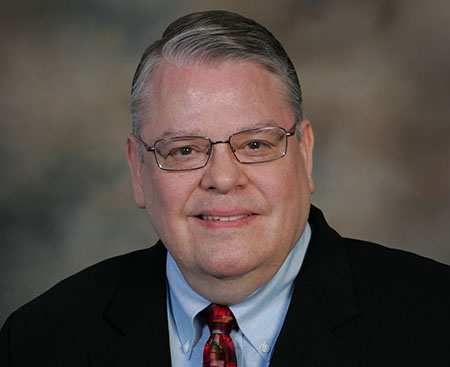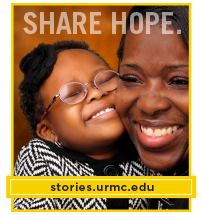January 2015
A Meliora Message

Have you ever wondered where the tradition of New Year’s resolutions came from?
Around 4,000 years ago, Babylonians would begin each year by making promises to their gods about returning objects and paying off debts. The ancient Romans practiced a similar tradition, only they spoke to one god: Janus.
Janus was the god of beginnings and transitions, and as you may have guessed, is January’s namesake. Depictions of Janus showed him with two faces—one looking forward and the other looking backward. It is in that spirit that we begin this, and every, calendar year.
Taking the time to reflect on how we arrived at the place we are today helps us determine where we are going in the future and how we will get there. We are now at the halfway point of the University’s fiscal year, not far removed from passing $1.1 billion, and closer to reaching new milestones in 2015, such as the opening and dedication of the new Golisano Children’s Hospital. Working with volunteers and academic leaders, we also are looking far ahead, beyond the successful completion of The Meliora Challenge. The University’s mission does not end with the Campaign, and developing a strategy to utilize the momentum we have generated is integral to our success in future endeavors.
Like us, we hope you are filled with pride for all we have accomplished, and at the same time, enthusiasm and ambition, for all we have yet to see come to fruition.
Schyve Commits Support to Bioethics

Paul M. Schyve '66, '70M (MD), '74M (Res)
In-vitro fertilization, palliative care, and access to and the allocation of medical resources are just a few topics in the nascent field of bioethics. Bioethics is the study of issues—usually controversial—that emerge from advances in biology and medicine. Paul M. Schyve ’66, ’70M (MD), ’74M (Res) sees the University as ideal ground for this kind of work.
To support the study and practice of bioethics in health care and research at the University, Paul has made a $5 million commitment that will be used to establish the Paul M. Schyve, M.D. Center for Bioethics.
“The University of Rochester, with its biopsychosocial tradition, is the perfect setting to deliberate bioethical issues and develop a framework for ethical decision making in clinical care, the health delivery system, and life sciences research. Ultimately, this will improve patient care and promote human dignity,” said Paul, senior advisor for Healthcare Improvement at The Joint Commission. “My education at the University played an important formative role in my professional career; I am pleased to find such a deeply meaningful way to give back.”
Paul’s gift will help advance bioethical training and education throughout the region; help professionals, patients, and families make bioethical decisions; and help enhance community understanding of bioethical issues. His vision for the Schyve Center for Bioethics is to, ultimately, have it help the University become an international leader in bioethics. Some of the early initiatives that will be key to this aspiration will be the unification of programs across the University and the institution of a bioethics council.
“As an academic medical center located on a university campus, we are uniquely positioned to become the leading resource for bioethics scholarship in upstate New York,” said Mark Taubman, CEO of the URMC and UR Medicine and dean of the School of Medicine and Dentistry. “Dr. Schyve’s generous gift will help make that a reality.”
A Rochester native, Paul became increasingly interested in the ethics of health care three decades ago when developing accreditation standards related to clinical, research, and organizational ethics at The Joint Commission. He joined The Joint Commission as director of Standards in 1986; subsequently serving as vice president for Research and Standards (1989–1993) and senior vice president (1993–2011) before assuming his current role.
You can read more about Paul’s gift in the official press release.







 View Printer Friendly Version
View Printer Friendly Version